How school feeding persists in spite of Cameroon’s coronavirus closures
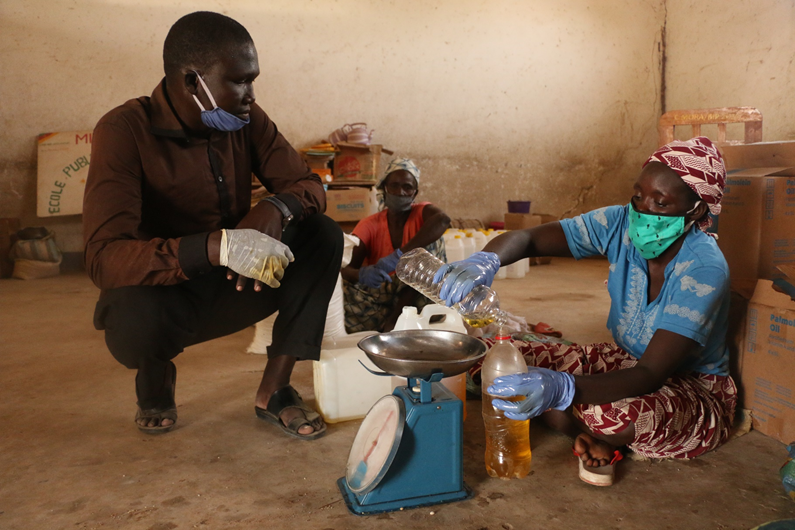
Story by Glory Ndaka
It is midday in Meme, a small village some 40 km away from Maroua town, capital of Cameroon's Far North Region. Since March, schools all over the country have been closed in response to coronavirus. The five primary-school Sections of the École Publique de Meme are partly opened today, this time not for training but for food distributing WFP's take-home ration — an initiative that ensures children continue to receive nutritious meals.
Impossible choices: Bolivia's coronavirus conundrum

Oumar, headteacher of Section 1B, which has 996 pupils, is busy monitoring the distribution of food commodities to parents. For the past two days, Oumar, with the help of six other teachers and volunteers, has been distributing take-home food rations consisting of rice, pulses, salt and vegetable oil provided by WFP under its school feeding programme.
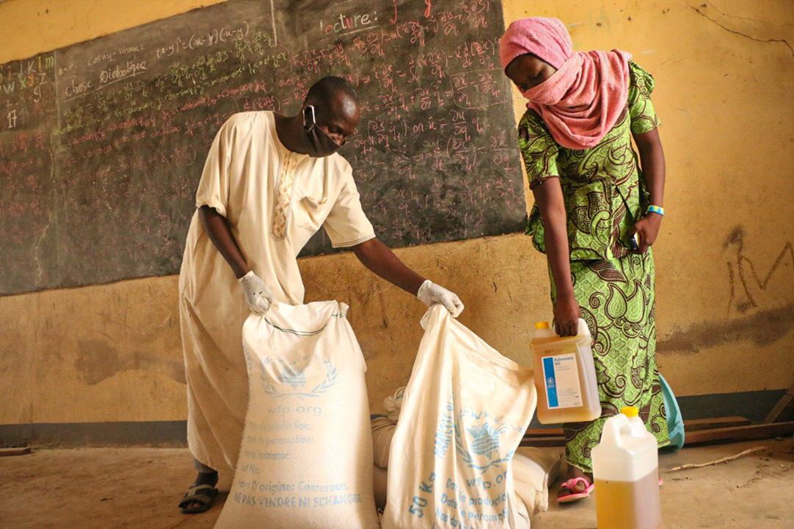
"This is the first time we are giving out dry rations to parents or pupils," says Oumar. "Our school canteen usually functions from here in school. We cook food items provided by WFP and serve the children with meals to enable them to concentrate and learn better. But after the school closures due to the COVID-19 pandemic, this seems to be the best option."
Oumar is one of the 88 headteachers of primary schools benefitting from WFP's school feeding programme in Far North Region.
They all are working to ensure that pupils receive nutritious food, as they continue studying from home during the COVID-19 pandemic. In Cameroon, WFP is supporting over 52,300 primary school children through its school feeding programme.
"As a teacher, I see this as my own contribution to my community during these trying times — who else will help us if not ourselves," says Oumar.
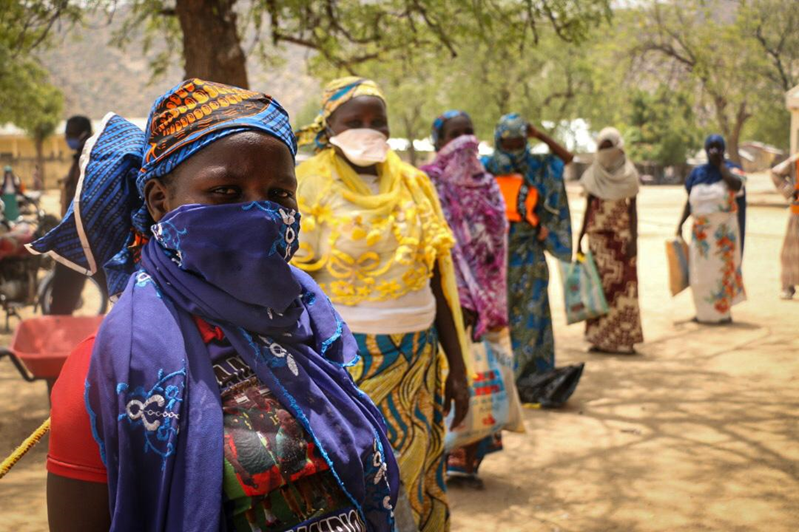
From informing community leaders on the take-home food ration initiative to briefing parents and pupils about following COVID-19 precautionary measures, such as maintaining social distancing, washing hands regularly and wearing masks on the day of the distributions, schoolteachers are paramount to the success of the initiative.
"We are glad to see that our messages reached the parents," says Oumar. "They didn't consider social distancing or washing hands before accessing the site to collect their rations as a burden. Facemasks though remain an issue, the prices have risen fivefold and most of the parents can't afford them".
Kyrgyzstan: To bee or not to bee
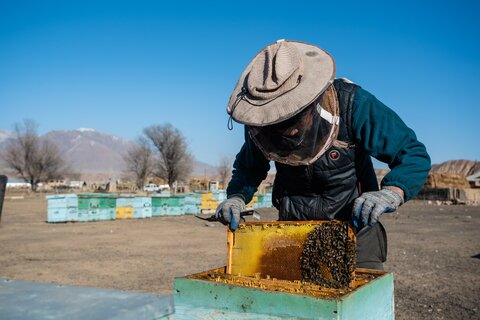
Apart from providing food commodities, WFP also provides gloves to food distributors as well as soap and water containers for handwashing stations for the schools to ensure that proper hygiene measures are respected.
Fifty metres away, Yaya Ousmanou, headteacher of Section 2B, is busy supervising the distribution of the take-home food rations to the parents of its 536 pupils. From ensuring everyone washes their hands at the entry point to keeping track of food supplies at the storeroom, he has his hands full.
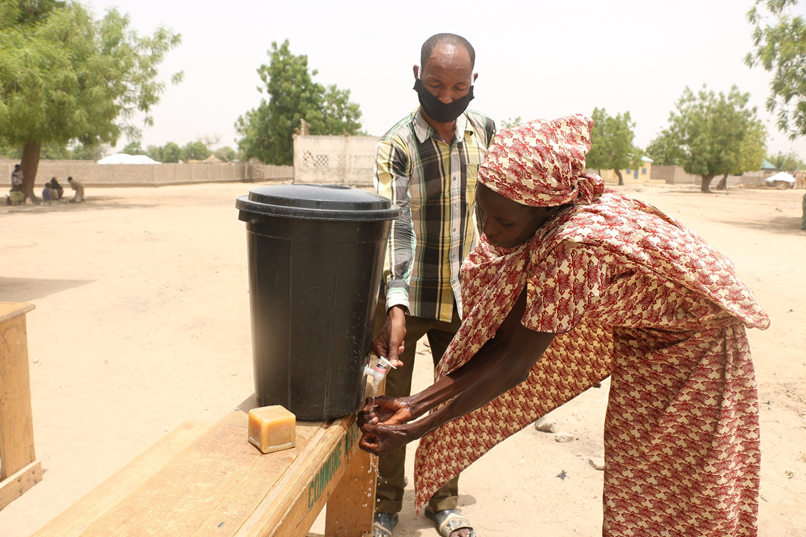
"I have to make sure that everyone receives exactly what is due to them and that each food commodity that leaves our storeroom is accounted for. So far, all is working according to the plan," adds Yaya.
Earlier in the year, the WFP logistic team trained relevant staff from all schools involved in the school feeding programme on proper management of the schools' storerooms and inventory control. For Yaya, more than ever before, that training is being put to good use as it is helping the schools better manage the take-home ration distributions.
"We are handling a bigger number of stocks than we are used to all at once, so I keep referring to that training to avoid any mistakes. Of course, with the constant supervision and support from WFP, that's unlikely to happen."
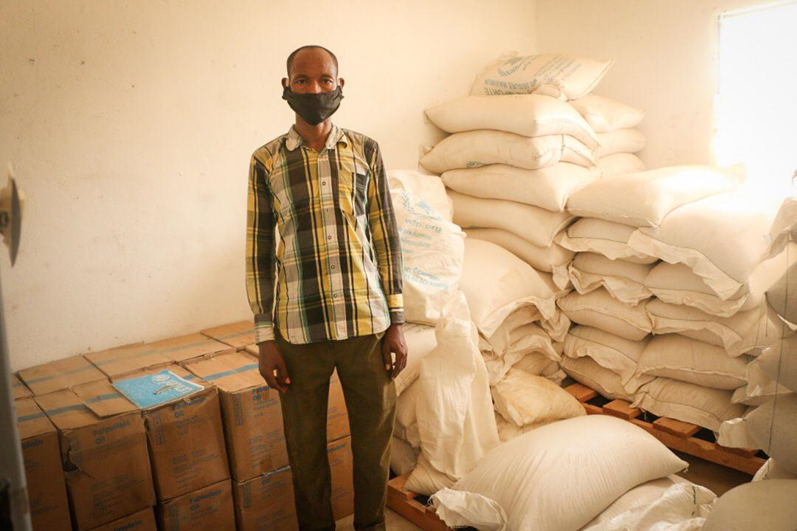
Cameroon, like other countries around the world, is battling with the spread of COVID-19. Due to the closure of schools and its impact on education and school feeding, WFP's assistance remains crucial for the most vulnerable families.
The support that teachers in Meme are providing their communities during this time is vital and emblematic of the organization's wider objectives, as COVID-19 threatens to push a further 130 million into severe hunger globally, bringing the total to 265 million in 2020.
Hunger in lockdown
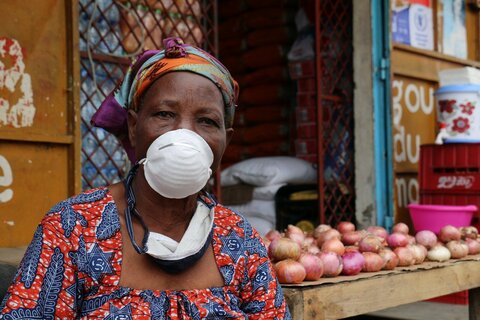
Across the world, WFP aims to reach 100 million people this year–including 22 million children and nursing mothers in need of lifesaving malnutrition prevention and treatment.
"Everyone is feeling the brunt of the pandemic, especially right now when most families are observing Ramadan," says Yaya. "I have had parents tell me that feeding the children at home has gotten even more difficult — especially for those families who are internally displaced."
"This assistance is important," adds Yaya. "I can see the gratitude in the parents when they collect their rations and this makes me humble to be a part of this activity. After all, it really does take a village to raise a child."
WFP school meals assistance in Cameroon is possible thanks to the financial support from donors including the Government of Japan.
